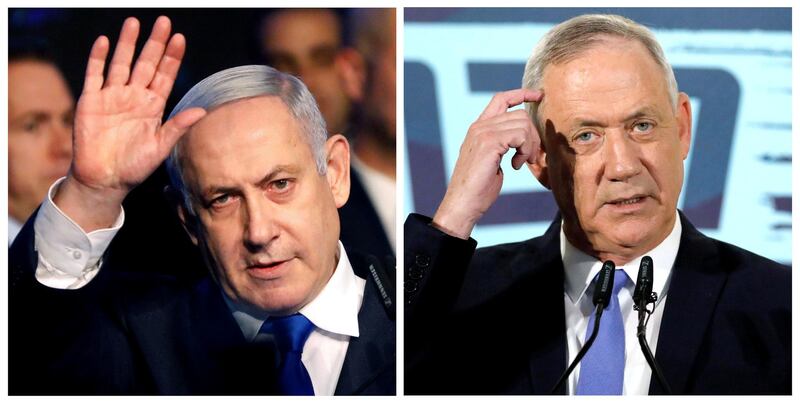Israel's next election will take place in March if the country's parliament dissolves this week after another failure by Prime Minister Benjamin Netanyahu and his main rival to form a coalition government.
As expected, neither leader will be able to obtain the 61 signatures needed to be chosen to have another chance at forming a coalition, sending the country into its third election campaign in a year.
Right-winger Mr Netanyahu and former army general Benny Gantz, who leads the centrist Blue and White alliance, traded blame over the impasse before Wednesday, the last opportunity to form a coalition and avoid fresh polls.
Mr Netanyahu, who was last month indicted on corruption charges said on Monday that he still wanted to form a "strong national government for Israel" and avoid "useless elections".
Referring to Mr Gantz and his allies, he called on them to "stop the transparent exercises designed to divert attention from the fact that you refuse to form a broad national unity government".
The two parties have been discussing the formation of a unity coalition but Mr Gantz has rejected serving under Mr Netanyahu, pointing to the corruption allegations that the premier denies.
"The prime minister must serve as an example to the public," Mr Gantz said at a meeting of his faction on Monday.
He called on Mr Netanyahu to publicly drop a demand that he be immune from prosecution, saying doing so would open the door to a unity government and avoiding "costly and unnecessary elections".
Following the inconclusive elections in September, Mr Netanyahu and Mr Gantz were given 28-day periods to try to negotiate a workable coalition in Israel's proportional political system.
Neither was able to get the support of more than half of the members of the 120-seat Knesset, or parliament.







